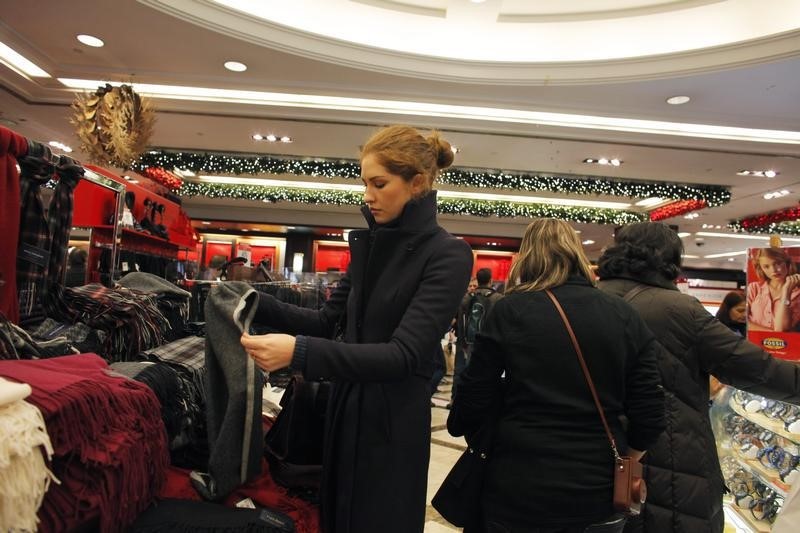By Geoffrey Smith
Investing.com -- U.S. retail sales rose surprisingly in August by 0.3%, as a fall in gasoline prices prompted consumers to drop some of their recent caution with regard to other areas of spending.
Spending on autos and parts rose a hefty 2.8%, while there were also notable gains for general merchandise stores, hospitality venues and sporting goods shops.
Despite that, however, core retail sales, which exclude spending on autos, fell 0.3% on the month, a sign that the highest inflation in 40 years is depressing demand. That weakness was also evident in the Census Bureau revising down its estimate for July's retail sales to show a drop of 0.4%.
Overall, retail sales were up 9.1% from August last year, which equate to an increase of less than 1% when adjusted for inflation.
The figures have been made harder to interpret by the big drop in gasoline prices over the month, which eased the squeeze on consumers' more disposable income. Sales at gas stations fell 4.2%, while sales excluding gasoline and autos rose 0.3%.
The trend in retail sales has been gradually weakening throughout the year as consumers use up the savings that they accumulated during the pandemic. It is, however, still being supported by the strength of the labor market, where initial claims for jobless benefits continued their summer decline last week to stand at only 213,000. their lowest since May.
Other data published on Thursday were more consistent with the retail sales numbers than with jobless claims. U.S. industrial production, meanwhile, fell for the second time in three months, by 0.2%, missing expectations for an unchanged reading.
The Philadelphia Federal Reserve's index of manufacturing activity also fell to -9.9, with slowdowns in all of the main subindexes for new orders, employment, capital spending and, crucially, prices paid.
Price pressures in the economy appear to be easing in part because of the normalization in freight markets, as China overcomes the problems it suffered earlier in the year with the lockdown of key ports such as Shanghai. Import price data published on Thursday showed a second straight fall in August, by 1.0%, while the backlog of ships waiting to dock at Los Angeles' Long Beach port has fallen from over 100 in May to 20 as of this week.
